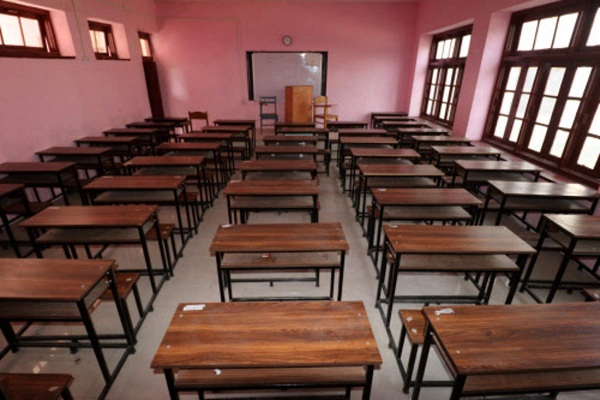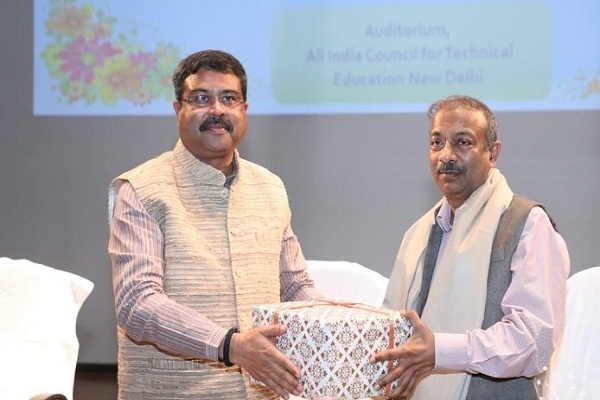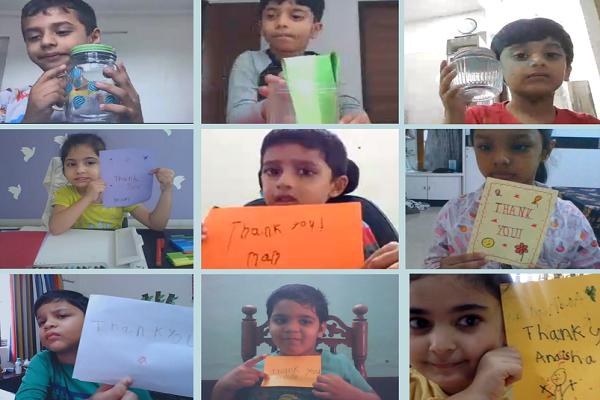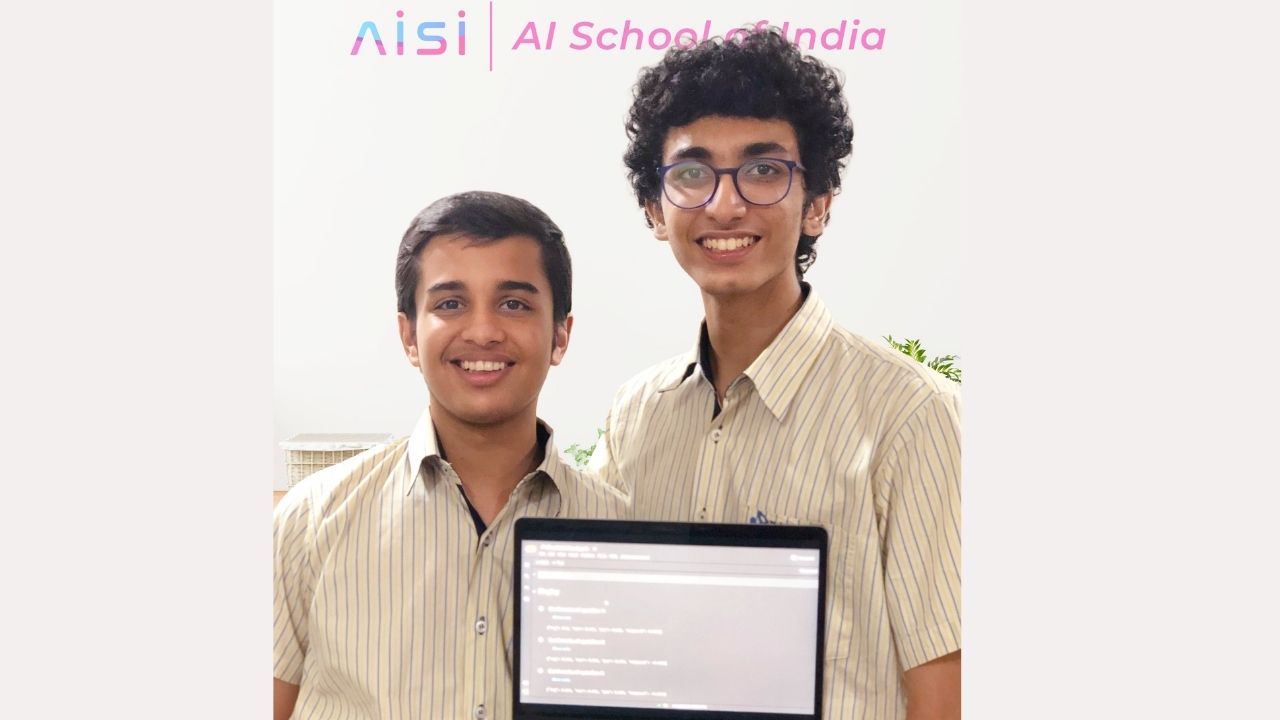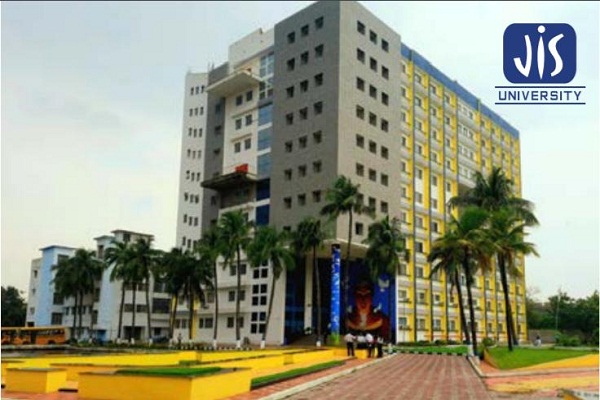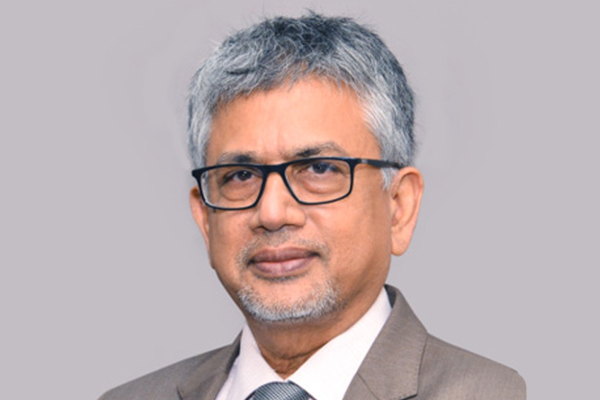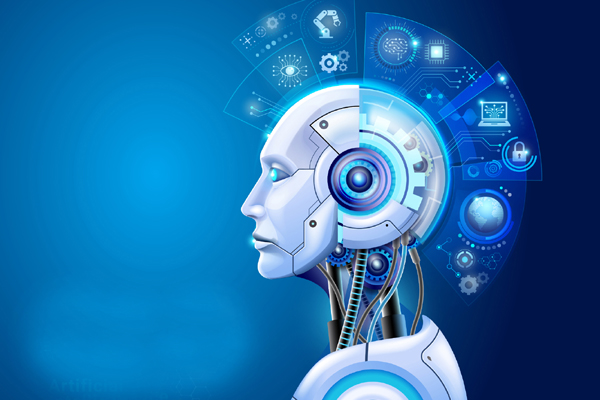Highlights
India’s biggest Online contest
Students from Grade 3 to 12 participated and came up with innovative solutions to tackle Covid Problem
6000+ Registrations from 400+ Schools across India
45% all girls’ Teams
Panel of International judges
Prizes include Internships at IIT Madras, Azure, Laptops, Tablets, Vouchers worth over Rs 10 lacs.
Our sincere appreciation and gratitude to all the student participants, parents, School leaders & Management for making the AI COVID Warrior Contest a grand success.
AI COVID WARRIOR CONTEST 2021 – Winners
The Covid-19 pandemic outbreak in March 2020 and the subsequent shutdown of Educational Institutions has posed unprecedented challenges in the education sector. Viewing this as an opportunity, leaders of progressive Educational Institutions have introduced innovative online teaching-learning solutions and engagement programmes while preparing students and faculty for the digital world.
Highlights of the Contest:
‘Unique, first of its kind’ Online Contest conducted in India to find Solutions to fight against Covid–19.
· Students from Grade 3 to 12 across India participated
· 6000+ Registrations, 400+ Registered Schools across India
· 45% all girls’ Teams
· Prizes include internships at IIT Madras, Internships at Azure Knowledge Corporation, Laptops, Tablets, Vouchers, Online Courses, Books and lot more.
We would like to convey our sincere appreciation and gratitude to all the student participants, their parents, School leaders & Management for taking part in the AI COVID Warrior Contest and making it a huge success!
Panel of International Judges for the Contest
Dr Wolfgang Slany, Graz University of Technology Austria,
Dr Ken Kahn, Senior Researcher, Oxford University of Technology,
Mr Roozbeh Aliabadi, CEO ReadyAI USA,
Dr B Ravindran, Head of RBC-DSAI, IIT Madras,
Mr Vipul Shah, Head Education & Skilling, TCS Global CSR.
Contest Winner’s (Code and Without Code) From Grade 3 to 12 across India. (Prizes 1st, 2nd & 3rd)
Overall, Pan India Schools Students won the contests South, West, East & North India.
Over all Top Prize Winners
Grade(9-12): Prize: 1st Place
Name: Aryaman Sharma, Adhiraj Mohan Chanana
School: The Shriram Millennium School
City: Noida
Project Name: Mansik Ashriya
Description:
Our project aims to normalize mental health, create awareness and make an easily accessible diagnostic platform for everyone anywhere. We have asked basic questions about the feelings of a person. The person will be requested to enter a paragraph that will be judged on the basis of positivity and negativity. A questionnaire is provided to the user after they have been found majorly negative while expressing their feelings in the entered paragraph. Our project provides a psychological score of a person’s mental health which will suggest if the person needs any professional help or not.
Our project has endless possibilities and we will continue to work on it to help as many people as we can.
Contest Winners (with code)
a)Grade (3-5):
Prize: 1st Place
Name:Kiaan Amit Sawant,Ruggved Rahul Mehta
school name :Rustomjee Cambridge International School, Dahisar, Mumbai
project name: MISA AI CONTEST
about project: Research to Treatment of Coronavirus uses any technology.
Robots have been used to sanitize whole hospitals, give medication, deliver food, decontaminate and handle biohazardous waste.
b)Grade(3-5):
Prize: AI – 4 Girls
Name: Yaagavi N , Jai Harini
school name : BVM Global @ Coimbatore
project name: AI learning project for Covid Warrior Contest
about project: how Artificial Intelligence learning algorithms can be used to find contactless transactions to avoid the virus spread among the humans.
c)Grade(6-8):
Prize: 1st Place
Name: Neev Datta, Siddharth Rajpal
school name : The Shriram Millenium School, Noida
project name: Introducing CoviBot
about project: Introducing CoviBot how to work on it.
d)Grade(6-8):
Prize: AI – 4 Girls
Name: Simran Tiwari, Saachi Poojar
school name : The Cambria International School, Kalyan
project name: AI learning project for Covid Warrior Contest
about project: Real time face mask detection
e)Grade(9-12):
Prize: 1st Place
Name: Aryaman Sharma, Adhiraj Mohan Chanana
school name : Shriram Millennium School, Noida
project name: Mansik ashriey
about project: Mansik Ashriey is an algorithm developed by us which focuses on the mental health of its users. The program is an effort to help people know about their mental state. It provides a psychological score of one’s mental health which will suggest if you need any professional help or not.
f)Grade(9-12):
Prize: AI – 4 Girls
Name: Trishlaa S.,Madhumithaa
school name : CS Academy, Erode
project name: Treating Depressed people By using AI.
about project: we have designed an AI system by using python and this system will find the mental status of people and give appropriate treatment to them.
g)Grade(9-12):
Prize: AI – 4 Girls
Name: Anusha Patil, Arlyn Bardeskar
school name : Sanjay Ghodawat International School, Kolhapur
project name: how to combat covid 19 Using AI
about project: To use Scratch and Scratch for AI and how there were some minor
differences. It was fun as a beginner in whole programming stuff because we could get more and more accommodated to Scratch.
Contest Winners (without code)
a)Grade(3-5):
Prize: 1st Place
Name: Rehaa Gautam , Nishma Ruparel
school name : Billabong High International School, Thane
project name: AI Covid Warrior Global contest 2021
about project: AI based app design to monitor and control the spread of Covid 19
b)Grade(3-5):
Prize: AI – 4 Girls
Name: Hridyesha Rane , Kashvi Bhavsar
school name : Rustomjee Cambridge International School, Dahisar (Thane)
project name: AI StuBot Model
about project : Our model AI – StuBot works by combining large amount of COVID related data with AI algorithms. It identifies patterns, analyses the data and understands the volume of exposure and infection in the particular area and study the trend of COVID -19 in that area.
c)Grade(6-8):
Prize: 1st Place
Name: Naman Sonpar, Shashwat Shukla
school name : The Shriram Millenium School, Noida
project name: Covid AIO Project report
about project: COVID AIO (All In One), is an application (app) which
helps to reduce the workload of the government, the citizens and
the frontline healthcare workers.
d)Grade(6-8):
Prize: AI – 4 Girls
Name: Nivedita Sandeep, Gauri Maitra
school name : Euroschool, Airoli, Mumbai
project name: AI-driven Prediction Model for Allocation of Future Resources Needed for Covid Patients
about project : Our Concept: Using AI to predict in advance the resources such as Number of Hospital Beds,Oxygen Cylinders, Medicines and Care packages that will be needed for Covid Patients.
e)Grade(9-12):
Prize: 1st Place
Name: Shatakshi Tiwari, Suryaansh Prithvij Singh
school name : Mount Litera Zee School East, Bengaluru
project name: c- BAN
about project: C – BAN is an AI based Watch which regularly monitor our health and if we any symptoms, it will alert us and says the necesaary actions to be taken.
f)Grade(9-12):
Prize: AI – 4 Girls
Name: Tahseen Naaz, Zohra Shakil
school name: Shri Shikshayatan School, Kolkata
project name: self-checkout areas
about project: Advanced self-check out system which is driven by an AI system which reduces the Spread of Covid 19 cases.
Idea behind the Contest:
We at AI School of India believe that with the knowledge of how AI works and
its impact, children have the potential to create innovative solutions to real-
world problems transforming our societies and shaping the future of our planet.
We were really amazed by the projects that we received and glad to see the
ideas of the little minds engaging themselves and expressing their ideas on how
to use Artificial Intelligence (AI) technology to solve real-world problems.
In fact, our judges had a hard time in finalizing the winners as every project that
was reviewed was equally creative and the solutions were mind-blowing.
“The purpose of conducting AI covid warrior contest was to make AI relevant to the ongoing pandemic. Most of the time, it is too theoretical or esoteric for people to understand how to make it a reality. Initially it was a challenge whether school students can take up this challenge and do something practical out of it but after we saw the number of entries we were greatly encouraged and excited.”
– Mr.Ramana Prasad
About the Chairman:
A true visionary Mr Ramana Prasad is also a successful entrepreneur and a widely respected Educationist. Started off his career with Intel in California USA as a New Technology Development Engineer and is now the Chairman and Managing Director AI School of India. He holds a B.Tech degree from IIT Madras and two Master of Science degrees in Engineering from the University of Cincinnati USA.
With a background in STEM and Robotics, Ramana holds the Position of the Chairman of Robotix USA and India and a member of the Advisory Board for the department of Engineering Design and Centre for Innovation, IIT Madras. A person with an immense talent placed at the head of the institution surely paves way for success.
About AI:
AI School of India offers an online self-paced learning platform providing AI experiences to students at home and to K12 schools. We seek to empower children to explore, learn & create with AI in an age-appropriate environment.
We are committed to providing both educators and parents with the most up-to-date curriculum and resources to accelerate learning and help students build a strong foundation of STEM skills preparing them for the future. We work with researchers, institutions, and companies, to enable the latest AI tech to students around the world.
As one of the fastest-growing edtech companies in this space, we have a unique vision to increase access to AI & coding and empower the inventors of tomorrow through both classroom and at-home learning.
We believe that AI learning should be fun, creative, collaborative, ethical, empathetic, inclusive, purposeful & for social good.
AI School of India, www.aischoolofindia.com/covidwarriors






